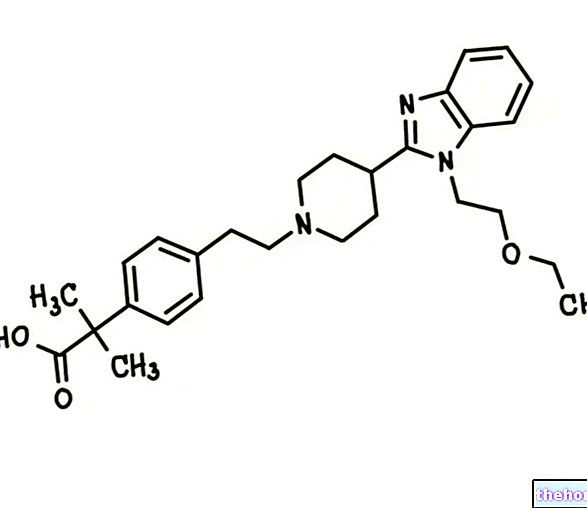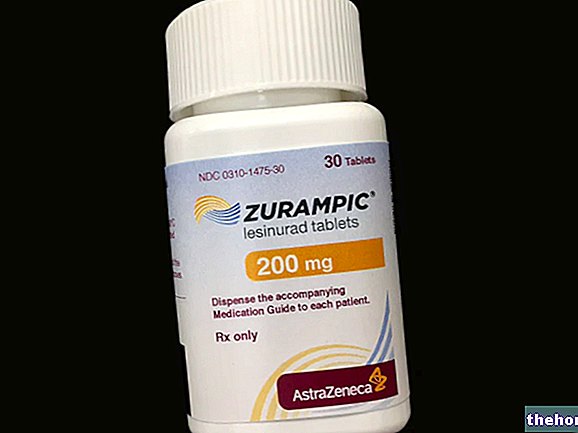Definition
Hashimoto's disease (or thyroiditis) refers to a chronic-inflammatory disorder affecting the thyroid, a small gland located at the base of the neck, involved in the synthesis of very important hormones (T3 and T4). In Hashimoto's disease there is an attack on the thyroid by the immune system itself, responsible for the hormonal imbalance (hypothyroidism).
Causes
The main cause of Hashimoto's disease is due to an uncontrolled reaction of the immune system against the thyroid gland: it is therefore an autoimmune disorder. In some cases, Hashimoto's thyroiditis is the result of endocrine disorders, adrenal insufficiency, type I diabetes mellitus, hypoparathyroidism. Risk factors: advanced age, repeated fungal infections (hypothesis not proven), genetic predisposition, female sex.
Symptoms
Typical of Hashimoto's disease is a slow but progressive onset: only rarely, the patient complains of symptoms during the early stages of the disease, therefore thyroiditis tends to be diagnosed late. Among the most recurrent symptoms, we remember: alterations in the menstrual cycle, weight gain, bradycardia, decreased sexual desire, brittle hair, high cholesterol, depression, decreased sweating, pain in the limbs and muscles, goiter, water retention, constipation, hoarse voice, cutaneous xerosis.
The information on Hashimoto's Thyroiditis - Medicines to Treat Hashimoto's Thyroiditis is not intended to replace the direct relationship between health professional and patient. Always consult your doctor and / or specialist before taking Hashimoto's Thyroiditis - Medicines to Treat Hashimoto's Thyroiditis.
Medicines
The treatment of Hashimoto's disease is essentially based on frequent medical observation and the intake of certain drugs. If the body is no longer able to produce sufficient hormonal quantities, it is evident that the intake of hormones from the outside is necessary; the administration of hormonal drugs is also useful in case of mild thyroid insufficiency (subclinical hypothyroidism).
In the event that Hashimoto's disease does not involve an evident hormonal deficit, the administration of drugs can be avoided, but the patient must still undergo repeated checks to keep the pathological condition under control.
It should be noted that, if a hormonal-based pharmacological process is undertaken, in any event, the patient will have to take these drugs for life.
The following are the classes of anticancer drugs most used in the therapy against Hashimoto's disease, and some examples of pharmacological specialties; it is up to the doctor to choose the most suitable active ingredient and dosage for the patient, based on the severity of the disease, the state of health of the patient and his response to treatment:
Levothyroxine sodium (eg Eutirox, Syntroxine, Tiracrin, Tirosint): this drug certainly represents the first line active ingredient for the treatment of Hashimoto's disease. It is recommended to start therapy with a dose ranging from 12.5 to 50 micrograms orally, once a day. Under the supervision of the physician, the dose can be increased by an amount up to 12.5-25 mcg per day, every 7-14 days; It is good to consider that in elderly patients or in children suffering from Hashimoto's disease which requires the administration of hormones, the dosage may increase by 12.5-25 mcg per day, but every 3-6 weeks. Typically, the effective dose does not exceed 200 mcg. In rare cases, the drug can also be taken intravenously or intramuscularly: in this case, the dose drops by 50-75% compared to administering the drug by mouth.
When taken at the doses prescribed by the doctor, levothyroxine does not generate many side effects; if not, consult your doctor immediately.
In any case, although the administration of this drug does not generate particular side effects, the simultaneous intake of some foods / substances can heavily influence the absorption of the drug, thus affecting the secondary effects and the therapeutic activity.
Drugs potentially capable of affecting the body's ability to absorb levothyroxine are listed below:
- Sucralfate (eg Degastril, Citogel): the drug is a protective of the gastric mucosa, widely used in therapy for the treatment of gastritis
- Calcium supplementation (eg. Calcium Carbonate: eg. Idracal, Carbosint, Lubical)
- Cholestyramine (eg Questran) cholesterol-lowering drug
- Aluminum hydroxide (Maalox) indicated for the treatment of gastric acidity, dyspepsia, heartburn, ulcer, gastritis and esophagitis
In the context of Hashimoto's disease, in case of levothyroxine therapy associated with the intake of large quantities of the substances listed above, it is recommended to consult a doctor, who will eventually modulate the dosage of the drug.




























